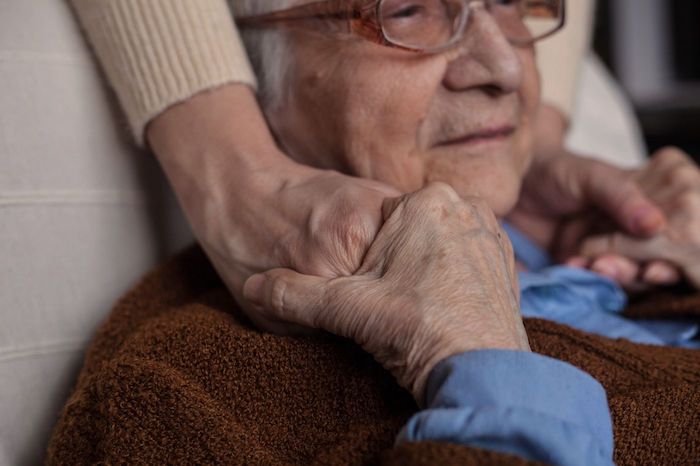
By BECKY RASPE
Grief can be a difficult process for anyone, but seniors tend to be faced with difficulty in healing after a profound loss.
Diane Snyder Cowan, director of Western Reserve Grief Services in Cleveland; Carolyn Lookabill, director of marketing at the Lantern of Chagrin Valley in South Russell; and Erin Matteo, social work manager and bereavement coordinator at Wexner Heritage Village in Columbus, said grief manifests differently for each person.
“Grief is a normal, necessary, natural reaction to loss no matter the age,” Cowan said. “It is unique to each person and grief is not linear. You don’t move through stages or get over it. It’s a total body experience impacting the emotions, cognition, behaviors, spiritual beliefs – basically the heart, mind and body.”
Lookabill added, “We all don’t display grief in the same way. It’s not always tears – it could be difficulty eating or sleeping. There is no normal, and that can be a difficult concept in a communal setting. It’s something other residents might not understand about each other.”
Matteo added experiencing grief following the death of a loved one can be compounded by other losses a senior could be experiencing.
“One thing that is specific to seniors is the loss they experience is not just the loss of a partner or friend, they experience loss of independence, ability to do things they enjoy or sometimes the loss of physical or mental capacity to do things,” she said. “So, the sheer magnitude of things they can experience directly related to their age imposes a lot of different barriers to quality of life. It’s important to understand the degree of their loss and the changes in their lives on top of that.”
Though grief affects people of all ages, it can affect seniors in ways unique to the age group.
“Aging adults often think about their mortality,” Cowan noted. “There are losses that occur as part of the natural aging process. Some aging adults are isolated, especially now during the pandemic. Many experience several losses within a short period.”
Matteo added, “A lot of them have that anticipatory fear, that they might be next or their time is coming too. When a senior loses someone, consider that it is not their first rodeo. They have this understanding that they are getting up there in age and have seen it happen.”
If left unchecked, unresolved grief can negatively impact a senior’s wellbeing.
“For the most part, that person begins to withdraw,” Lookabill said. “They begin to not respond to overt attempts by neighbors and friends to be supportive. They withdraw to the point where they become more isolated and not even get dressed or cook their meals. Their nutrition and language skills can suffer too.”
For a senior struggling with these emotions, it’s important to not invalidate their feelings, Matteo stated.
“When someone in their 80s and 90s loses a partner, that loss is very significant because a lot of those seniors have been married for over 60 years,” she explained. “One of the things people like to say is ‘they were really old’ or ‘they lived a good life.’ When you say those kinds of things, you minimize their grief for the rest of the family to be able to move on and be comfortable.”
Family members should be prepared to approach the situation with an open mind and willingness to listen, the professionals said.
“The family member doesn’t even have to speak,” Lookabill said. “You don’t have to say anything. Your presence is supportive. It’s good to be available, even if you don’t fully understand the situation. They can share the grief that they have in common. It doesn’t have to be a major response, just be there in the moment.”
Cowan said, “If family is available, offering an open heart, love and listening is the first step in supporting a grieving loved one. It’s important to remember that older adults may need more time to become aware of and express their feelings.”
Complete Article ↪HERE↩!
